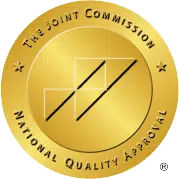What Recovery is Not

Achieving sobriety from drugs or alcohol might seem straightforward from the outside, like quitting and attending rehab. However, addiction is a complex, life-changing disease that affects everyone differently. This means that recovery is an ongoing journey that demands dedication and a readiness to change.
Some people believe that sobriety is a goal you reach, and then you’re done. It’s actually a continuous pursuit with various milestones, including the day you stop using, attending rehab, participating in a recovery community, and many more throughout your life.
While the path differs for each person, there are common misconceptions about what recovery entails.
Recovery is Not Temporary
Recovery is an achievement, but it’s not the final goal. Overcoming addiction is significant, but maintaining sobriety can be challenging. Recovery is an ongoing process, not a simple on/off switch. Setbacks can occur, and some days are tougher than others. Forgiving yourself for setbacks and working toward a substance-free life is essential. It becomes easier over time with the right mindset, support, and perseverance.
Sobriety Varies for Everyone
There isn’t a one-size-fits-all approach to recovery. Addiction is a deeply personal, chronic disease affecting each person differently. People also have distinct challenges, situations, and needs requiring personalized treatment plans. Treatment levels include detoxification, inpatient and outpatient programs, and support groups. However, the journey may not follow a linear path, so it’s crucial to consult professionals for a customized plan.
Recovery Doesn’t Mean Returning to the Past
Staying sober involves lifestyle changes. Certain situations, places, or people may have contributed to your addiction. If you revert to your lifestyle during active addiction, you risk responding to these triggers as before. In recovery, you’ll learn new coping strategies and explore interests or hobbies that keep you focused and fulfilled. Building healthier relationships and avoiding situations centered around substance use are essential.
Sobriety Doesn’t Erase Your Past
While recovery offers a fresh start, it doesn’t erase your history. Acknowledging past actions and making amends is vital to sobriety in programs like the 12 Steps. Making amends allows healing for you and those you’ve hurt, aligning your intentions with your actions, and helping you forgive yourself.
Treatment isn’t the End of Your Life
Addiction affects people from all backgrounds, and it’s recognized as a disease by healthcare professionals. The stigma surrounding addiction has lessened, and most people in your life are likely to be supportive. Educational resources are available if friends or family want to help but don’t understand how.
Recovery Does Not Mean the End of Socializing
In active addiction, you may have had friends who encouraged substance use. While some may not support your recovery, you’ll make new friends who understand your journey. Sobriety can also help you rebuild relationships damaged by addiction, and recovery communities offer support and social opportunities.
Sobriety Requires Commitment
Recovery isn’t a one-time achievement but a lifelong process. After treatment, you’ll encounter daily challenges. Sobriety involves continued effort, such as attending meetings, finding a sponsor or mentor, sticking with a program, and practicing meditation or prayer. It’s a commitment to being as healthy as possible.
Overcoming addiction and maintaining recovery is not easy, but it’s always worth it. Recovery isn’t a single event; it’s a lifelong promise to yourself to prioritize your health. Challenges will arise, but with the right support and tools, you can conquer addiction, and the reward is your life.
We're here when you are ready to take your first steps toward recovery.
Recovery Advisors are available to take your call 24/7, even during the holiday season.
Call Today







